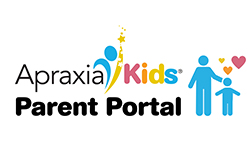If you have concerns about your child’s development in addition to their speech, other professionals may be called on to get involved in helping your child. If there are other co-occurring developmental or medical conditions present, other disciplines will be involved as needed. For example, a developmental-behavioral pediatrician can evaluate all aspects of your child’s development.
DEVELOPMENTAL PEDIATRICIAN
A Developmental Pediatrician is a pediatrician with advanced training in neuro-developmental disorders and “atypical”, out of the ordinary child development. This type of professional can help recommend specialists and coordinate and advocate for services that the child may need. You may also find this professional listed as a Developmental-behavioral Pediatrician.
PEDIATRIC NEUROLOGIST
A Pediatric Neurologist may be helpful if there are overall neurological concerns in addition to speech. If you are concerned about whether or not there is a problem of brain structure, wonder about possible seizures, and other brain related activities, the neurologist can help. Some medical tests that can be done include MRIs to examine brain structure and extended EEGs to investigate the electrical system of the brain.
CLINICAL GENETICIST
A Clinical Geneticist may become involved if there is suspicion of an underlying genetic condition. We know that one way in which CAS may occur is as a characteristic of neurological, genetic, metabolic and/or mitochondrial disorders. Increasingly, research is demonstrating that there are a number of genetic conditions in which childhood apraxia of speech, and/or severe speech disorder, is a characteristic. In the last few years, since the Human Genome Project was implemented, a new concept in genetics has appeared. It is called copy number variant (CNV). CNV refers to the finding that individuals can have small parts of chromosomes that are missing, duplicated, rearranged, or in some way different from what is expected. Research has discovered that many people have these small differences. Some people with CNVs have no noticeable difference in their functioning and others do have problems. There are some CNVs identified in research publications that have childhood apraxia of speech as one characteristic. For these reason, a wholistic and comprehensive evaluation of many factors may be warranted. If there are extended family members who also have histories of speech and/or language problems or if there are medical concerns about your child, parents should speak to their pediatrician about referral to a geneticist. Currently, a type of genetic testing called Microarray-based comparative genomic hybridization is most useful.
OCCUPATIONAL THERAPIST
An Occupational Therapist can evaluate your child’s overall ability to function in many aspects of life, including fine motor control. Often, children with apraxia of speech have difficulty in managing the fine motor movements and coordination with their hands that are necessary for skills such as printing and writing, dressing, manipulating toys or objects and other self-help skills. Additionally, some occupational therapists are great resources for evaluating children with difficulty eating. Sensory processing difficulties are often reported by parents of children with CAS, such as difficulty with noises or in touching various textures and more. A highly trained occupational therapist can help evaluate and treat sensory difficulties.
PHYSICAL THERAPIST
A Physical Therapist can evaluate overall physical functioning, body coordination and motor control of larger muscles of the body (gross motor control) and how the child is able to function in their environment. A percentage of children with CAS have gross motor planning challenges, but not all.
A DEVELOPMENTAL SPECIALIST OR PSYCHOLOGIST
A Psychologist or Developmental Specialist can help to examine a child’s cognitive abilities and whether they are developing as expected. In young children, their ability to participate in play experiences that are typical for their age can be affected. Lack of the ability to adequately communicate can lead to increased frustration, stress, and/or anxiety. An astute psychologist will understand that children with a limited ability to speak are not able to participate in some forms of psychological testing that requires verbal responses.
OVERALL
Many children with apraxia of speech do have other developmental issues to some degree or another. It is very important for parents and physicians to carefully monitor and respond to any concerns. Some of the most frequent developmental concerns that have been highlighted in the research include difficulties in fine motor control (such as in using the hands for skilled movement) and sensory processing. Developmental Coordination Disorder (DCD) is commonly being reported and has ongoing research to determine its prevalence in children with CAS. DCD is defined as a neurodevelopmental disorder that effects overall motor skill development and coordination which can impact activities of daily living and participation in physical activities.
